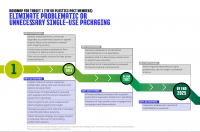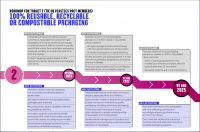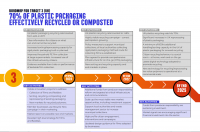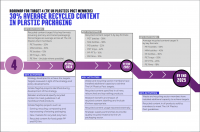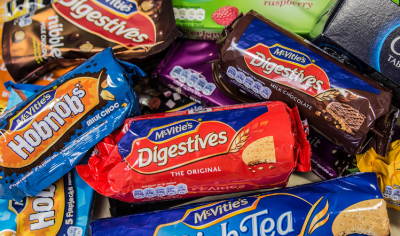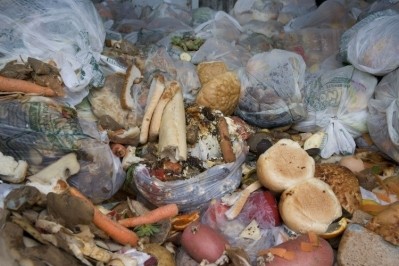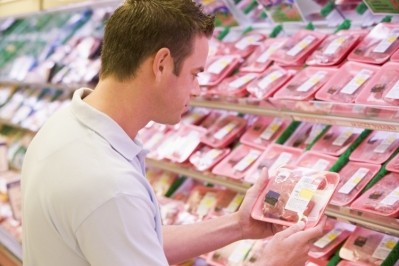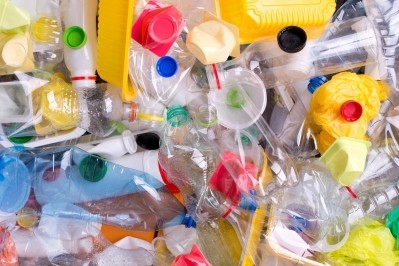WRAP launches Plastics Pact roadmap
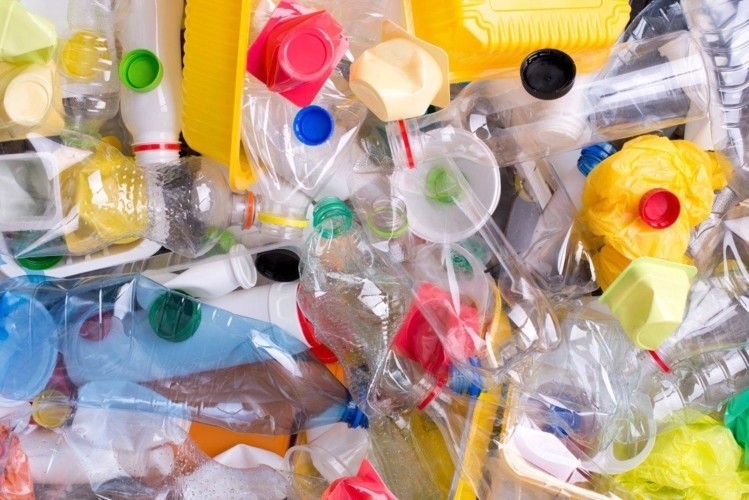
The roadmap shows what members of the pact and its supporters can do to deliver on targets. Key outcomes have been set by the end of its first year (April 2019), by the end of 2022 and at the end of the programme in 2025.
The targets include the elimination of problematic or unnecessary single-use packaging, making 100% reusable, recyclable or compostable packaging, successfully recycling 70% of plastic packaging and making 30% of the content in plastic packaging recycled.
Key points of the UK Plastics Pact roadmap
- The Roadmap outlines key activities that could be taken by all parts of the supply chain to deliver the four targets.
- Key outcomes by the end of year 1 (April 2019), end-2022 and end-2025.
- Together the 68 members are responsible for 80% of plastic packaging sold in UK supermarkets, and half of all packaging placed on the market.
To support the targets, WRAP suggested a number of actions that Plastic Pact members should take to achieve these waste-reducing goals.
This included companies incorporating the targets with their own corporate and organisational targets, as well as supporting consumer behaviour change on recycling and reuse, through corporate and brand channels.
‘Powerful and motivated group’
Commenting on the roadmap’s launch, WRAP chief executive Marcus Gover said: “I’m very impressed with progress made in the first six months since we launched the Pact. This is proving to be a powerful and motivated group. The Roadmap is a real opportunity for them to forge ahead and make change happen at scale, and in significant ways.
“But these targets cannot be delivered by business action alone. It needs policy intervention as well as consumers to play a part. Factors like Extended Producer Responsibility are going to have a profound influence on momentum, and effecting change in areas such as collections, recycling and reprocessing.”
WRAP highlighted some of the work already being done by members of the pact to reduce single use plastics and increase their packaging’s recyclability.
Innocent Drinks’ head of circular economy Louise Stevens said: “What’s been really powerful is being able to engage in how to increase recycling rates, which is something we have to join this pact to be able to do – we can’t do that on our own.
‘Changes we’ve made’
“In terms of changes we’ve made, shortly after the pact launched we released our new smoothie bottle that is made of 50% recycled plastic and 15% plant-based plastic. It’s something we’re really proud of.”
Highland Spring’s Alex Haken said the company had made progress against the plastic pact targets and had recently trialled a 100% recycled and recyclable eco bottle, which had been a huge success with its consumers.
“It shows consumers definitely understand the benefits of putting recycled material in recyclable products,” he added.
You can see a full list of the key outcomes featured on WRAP’s roadmap for the UK Plastic Pact in the infographics below.
